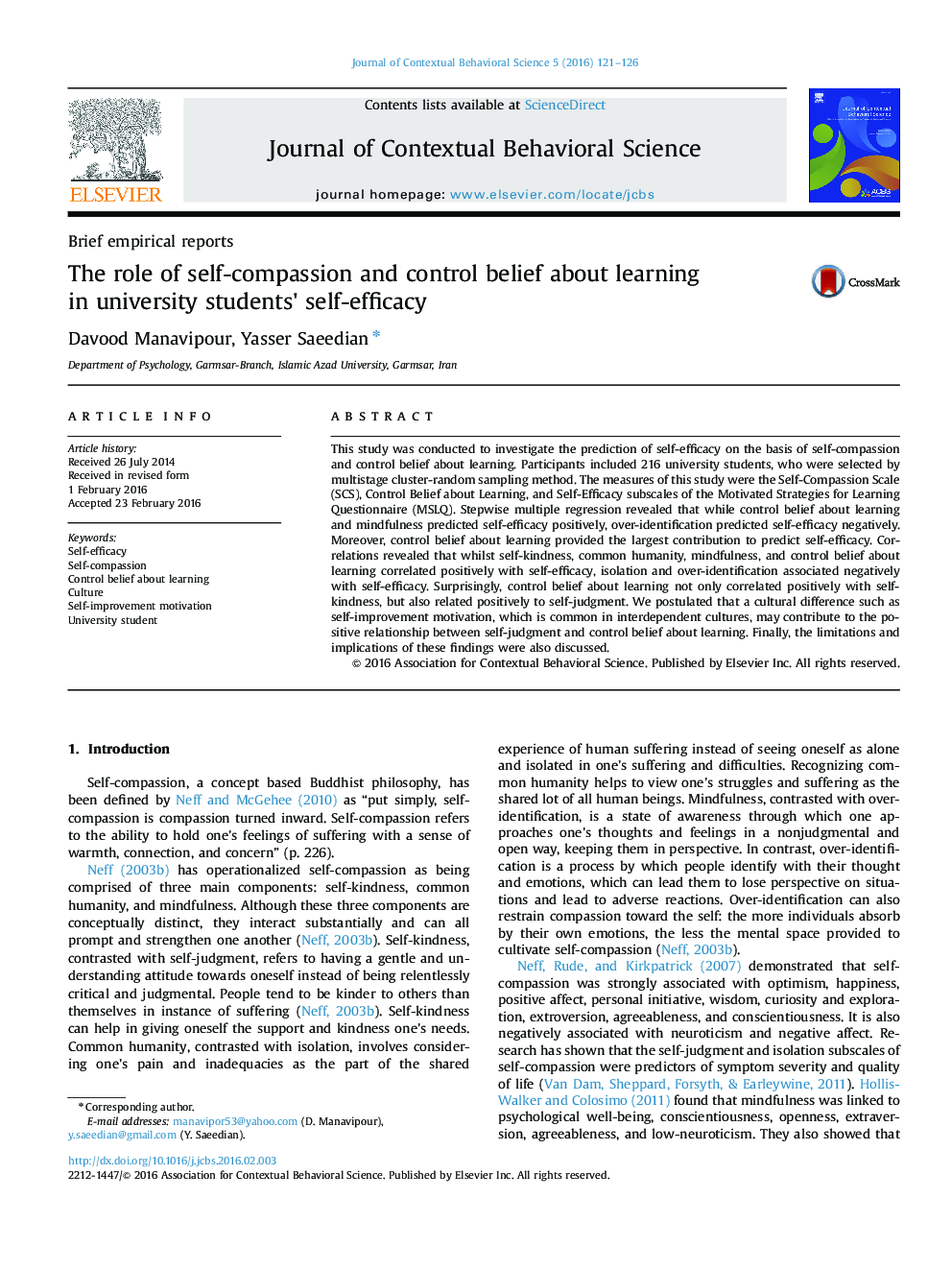| Article ID | Journal | Published Year | Pages | File Type |
|---|---|---|---|---|
| 911157 | Journal of Contextual Behavioral Science | 2016 | 6 Pages |
•Control belief about learning and mindfulness predicted self-efficacy positively.•Over-identification predicted self-efficacy negatively.•Positive components of self-compassion related positively to self-efficacy.•Isolation and over-identification associated negatively with self-efficacy.•Self-judgment correlated positively with control belief about learning.
This study was conducted to investigate the prediction of self-efficacy on the basis of self-compassion and control belief about learning. Participants included 216 university students, who were selected by multistage cluster-random sampling method. The measures of this study were the Self-Compassion Scale (SCS), Control Belief about Learning, and Self-Efficacy subscales of the Motivated Strategies for Learning Questionnaire (MSLQ). Stepwise multiple regression revealed that while control belief about learning and mindfulness predicted self-efficacy positively, over-identification predicted self-efficacy negatively. Moreover, control belief about learning provided the largest contribution to predict self-efficacy. Correlations revealed that whilst self-kindness, common humanity, mindfulness, and control belief about learning correlated positively with self-efficacy, isolation and over-identification associated negatively with self-efficacy. Surprisingly, control belief about learning not only correlated positively with self-kindness, but also related positively to self-judgment. We postulated that a cultural difference such as self-improvement motivation, which is common in interdependent cultures, may contribute to the positive relationship between self-judgment and control belief about learning. Finally, the limitations and implications of these findings were also discussed.
